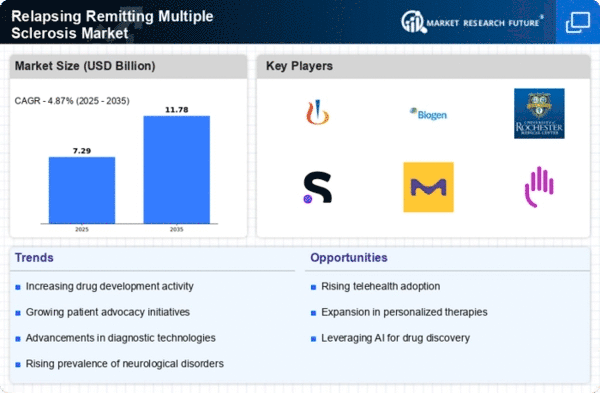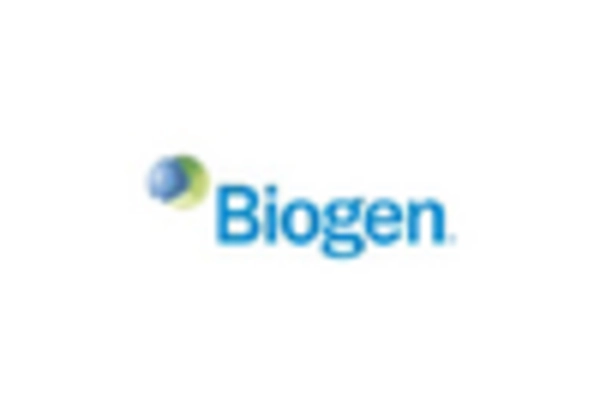Market Trends
Key Emerging Trends in the Relapsing Remitting Multiple Sclerosis Market
One major trend is developing and using disease modifying agents (DMTs). Pharmaceutical firms are investing heavily on new DMTs that will help slow down disease progression, reduce relapse rates and alleviate symptoms for patients with RRMS. Moreover, there are oral and infusion-based DMTs that increase options for patients who can now manage their diseases flexibly.
Personalized medicine approach is another area of interest when it comes to innovative treatments offered in RRMS market. Medical practitioners leverage on advances made in genetic research as well as biomarker discovery to individualize therapy for a particular patient based on his or her characteristics. Personalized medicine ensures side effects are minimized hence optimizing treatment efficacy thereby leading to improved outcomes and better quality of life of those treated with such precision medicines.
More so, digital health solutions have experienced increased adoption within the RRMS management sector. Patients can conveniently use mobile applications, telemedicine platforms or wearable devices to monitor symptoms among other things from home even miles away from hospitals or clinics they were previously scheduled to visit physically. With these tools available online through digital channels patients now have an opportunity to engage more deeply into their own care process by keeping the right track about symptom dynamics actively intervening where necessary and making timely shifts within the course of therapeutic interventions related specifically to certain medications.
The importance of early intervention strategies has grown significantly within the context of RRMS treatment market’s topography too. Thus it is crucial that treatments commence at earliest stages possible so as to prevent disability-prone progressions and improve long-term prognosis according to healthcare providers’ recommendations .Thus physicians and patients are encouraged to be proactive in the management of RRMS through awareness programs and educational initiatives meant to check delays in diagnosis and treatment initiation.
Integrated care models are becoming more popular in the context of RRMS. These include collaborations between neurologists, physical therapists, occupational therapists and mental health providers whose main goals have been providing comprehensive care for people with RRMS. By focusing on integrated care rather than just physical symptoms, these types of approaches help achieve holistic well being by addressing cognitive as well as emotional aspects related to chronic neurological conditions.
Furthermore, market trends indicate a shift towards patient-centricity. Supported by improved healthcare communications amongst other factors, patient advocacy groups play a critical role in raising awareness about this disease empowering patients and influencing choices made regarding its management. Through such patient-centered approach healthcare providers become partners with people living with MS ensuring that decisions taken are shared thereby moving healthcare system from disease-oriented perspective towards one reflecting patient’s preferences over value of life and their quality.
Moreover, there has been an effort to address the economic burden associated with long-term disease management within the RRMS treatment market. The affordability of drugs is improved through establishment of biosimilars and generic DMTs for existing versions. In addition, expensive therapies can now be accessible since there are value-based pricing models plus patient assistance programs designed particularly for individuals who suffer from multiple sclerosis (MS).



















Leave a Comment